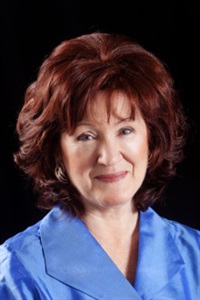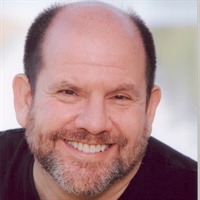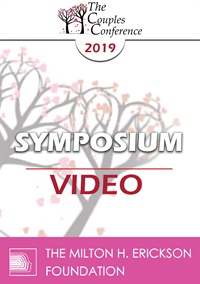CC19 Symposium 02 - Introduction to 2 Models - Sue Johnson, EdD; Stan Tatkin, PsyD, LMFT
Credit Available - See Credits tab below.
Total Credits: 1.0 including 1.0 A.P.A.
- Average Rating:
- Not yet rated
- Topic Areas:
- Symposiums | Emotionally Focused Therapy (EFT) | Psychobiological Approach to Couples Therapy (PACT) | Attachment | Developmental Psychology
- Bundle(s):
- CC19 Main Conference Video Bundle | CC19 Individual Selections
- Categories:
- Couples Conference | Couples Conference 2019 | Online Continuing Education | Pioneers in Couples and Family Therapy
- Faculty:
- Sue Johnson, EdD | Stan Tatkin, PsyD, MFT
- Course Levels:
- Master Degree or Higher in Health-Related Field
- Duration:
- 55:52
- Format:
- Audio and Video
- Original Program Date:
- Apr 13, 2019
- License:
- Never Expires.
Description
Description: This dialogue between EFT and PACT highlights two distinct, research-informed approaches to couple therapy. Johnson presents EFT’s focus on attachment security, corrective emotional experiences, and systemic change. Tatkin emphasizes PACT’s attention to arousal regulation and real-time interaction. Together, they underscore the importance of attuned, principle-based interventions for lasting relational transformation.
Syllabus Description: Each faculty member will present basic principles for their model to help the audience understand the strengths of the model: EFT and PACT.
The essential features of EFT- a client centered alliance, a focus on emotion regulation and balance, the creation of self and system change, and the key interventions and corrective moments that have been shown to lead to predictable lasting change in love.
PACT was developed out of exciting, cutting-edge research in three areas: developmental neuroscience, biology of human arousal, and attachment theory. PACT focuses strongly on moment-to-moment shifts in the face, body, and voice, and asks partners to pay close attention to these while they interact. The goal is secure functioning.
Educational Objectives:
- Outline the key features of EFT that have been shown to lead to successful outcome.
- Describe at least three principles of secure functioning relationship.
*Sessions may be edited for content and to preserve confidentiality*
Credits
1.0 credits available.
The Milton H. Erickson Foundation, Inc. is approved by the American Psychological Association to sponsor continuing education for psychologists. The Milton H. Erickson Foundation, Inc. maintains responsibility for this program and its content.
THE MILTON H. ERICKSON FOUNDATION Policy on Disclosure
The Milton H. Erickson Foundation is proud of the conferences and other
educational opportunities it sponsors, taking care that the conduct of
these activities conforms to the standards and principles of behavioral
and medical sciences, thus ensuring balance, independence, objectivity
and scientific rigor in all individually sponsored or jointly sponsored educational
activities.
All faculty members participating in a sponsored activity, and those who
review and therefore are in control of content, are requested to disclose
any relevant financial relationship prior to the CME activity, including but
not limited to specific commercial interests, financial remuneration received
by faculty member or spouse, and what role or activity was performed
for this remuneration. If a conflict of interest exists as a result of
a financial relationship it will be resolved prior to the activity. A faculty
member will not be allowed to present if the conflict is not or cannot be
resolved.
Handouts
| Sue Johnson - EFT with Couples (2.8 MB) | Available after Purchase | ||
| Sue Johnson - Attachment (183.1 KB) | Available after Purchase | ||
| Stan Tatkin - Neuroscience Behind Doing the Right Thing (740.3 KB) | Available after Purchase | ||
| Stan Tatkin - 2 Theories (530 KB) | Available after Purchase | ||
| Stan Tatkin - PACT and Personality Disorders (676.2 KB) | Available after Purchase | ||
| Stan Tatkin - PACT Intro 1 (887.3 KB) | Available after Purchase | ||
| Stan Tatkin - PACT Intro 2 (730.3 KB) | Available after Purchase | ||
| Ericksonian Learning Snapshot (249.1 KB) | 2 Pages | Available after Purchase |
Faculty

Sue Johnson, EdD Related Seminars and Products
Dr. Sue Johnson is an author, clinical psychologist, researcher, professor, popular presenter and speaker and a leading innovator in the field of couple therapy and adult attachment. Sue is the primary developer of Emotionally Focused Couples and Family Therapy (EFT), which has demonstrated its effectiveness in over 30 years of peer-reviewed clinical research.
Sue Johnson is founding Director of the International Centre for Excellence in Emotionally Focused Therapy and Distinguished Research Professor at Alliant University in San Diego, California, as well as Professor Emeritus, Clinical Psychology, at the University of Ottawa, Canada.

Stan Tatkin, PsyD, MFT Related Seminars and Products
Stan Tatkin, PsyD, MFT, is a clinician, researcher, teacher, and developer of A Psychobiological Approach to Couple Therapy (PACT®). He has a clinical practice in Calabasas, CA, where he has specialized for the last 15 years in working with couples and individuals who wish to be in relationships. He and his wife, Tracey Boldemann-Tatkin, developed the PACT Institute for the purpose of training other psychotherapists to use this method in their clinical practice.


